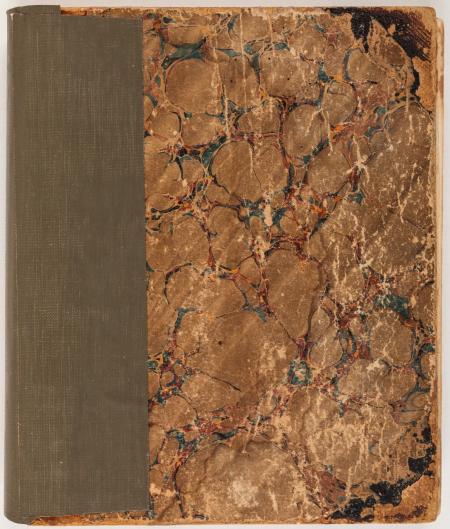
Percival Bonney (1842-1906) was born in Minot, Maine, the only child of William Lowell and Adeline French Bonney. He attended the Maine State Seminary (later Bates College) and Waterville College (later Colby College). He married Elizabeth Bray and had two daughters. Bonney started his career as a United States Department of Treasurey clerk, practiced law, and was appointed to the Maine State Superior Court. He was also a director of the Union Mutual Life Insurance Company and chair of the Colby College Board of Trustees.
This diary was written by teenaged Bonney at Colby College during the tense leadup to the Civil War. Bonney was intensely interested in politics and social issues between young men and women during that period. He ridiculed the opposition to men and women socializing and enjoyed meeting women and developing a "more intimate acquaintance" with Elizabeth Bray.
Bonney's detailed references to the tense politics of the era are remarkable for a teenager and include comments on John Brown and his execution, a debate on whether America was harder of Black people rather than Indigenous people, and his full support of Abraham Lincoln's run for the presidency and his abhorrence of slavery. He closely followed Lincoln's nomination and election. He also referred to the "fire eaters" and "seceders" as well as the "Wide Awakes" and Senator Charles Sumner. Bonney believed that Stephen Douglass was "an easy man to be beaten." In the end, Bonney firmly believed that "disunion will die out," and the South would "tamely submit."
In addition to a teenager's analysis of the politics of this period, the diary contains details about his studies, debates, and difficulties with a student bully. The last few pages of the diary were written in light ink and are difficult to decipher and ends a few days after the start of the Civil War.